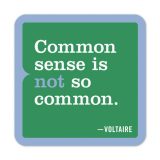Expert evidence not needed if common sense prevails.
On June 23, 2017, the BC Supremc Court considered the use, and overuse, of expert evidence in personal injury litigation.
Truax v. Hyrb, 2017 BCSC 1052, was an action arising out of a motor vehicle accident in which fault was at issue. The defendant brought an application seeking a dismissal of the lawsuit and argued that in failing to adduce expert engineering evidence an adverse inference should be drawn against the plaintiff. In rejecting this argument, Mr. Justice Dley provided the following comments about the role of expert evidence:
[20] The defence argues that the failure by the plaintiff to introduce engineering evidence of the collision is “telling” and that an inference should be drawn against Mr. Truax. I agree that the absence of engineering evidence is telling – there is no need to call such expert evidence when common sense prevails.
[21] Litigation has become a costly venture; oftentimes unnecessarily so. Litigants are far too quick to secure expert testimony when it is not required. Perhaps that is out of an abundance of caution and concern that the absence of expert evidence will be a failing of counsel.
[22] Each case should be considered on its unique circumstances. It is trite to say that it is not necessary to call expert evidence on each issue. Expert testimony should be restricted to those matters where it would actually assist the court because the evidence is so specialized, scientific or complex. Expert evidence should not be viewed as a default or automatic step in litigation strategy.





